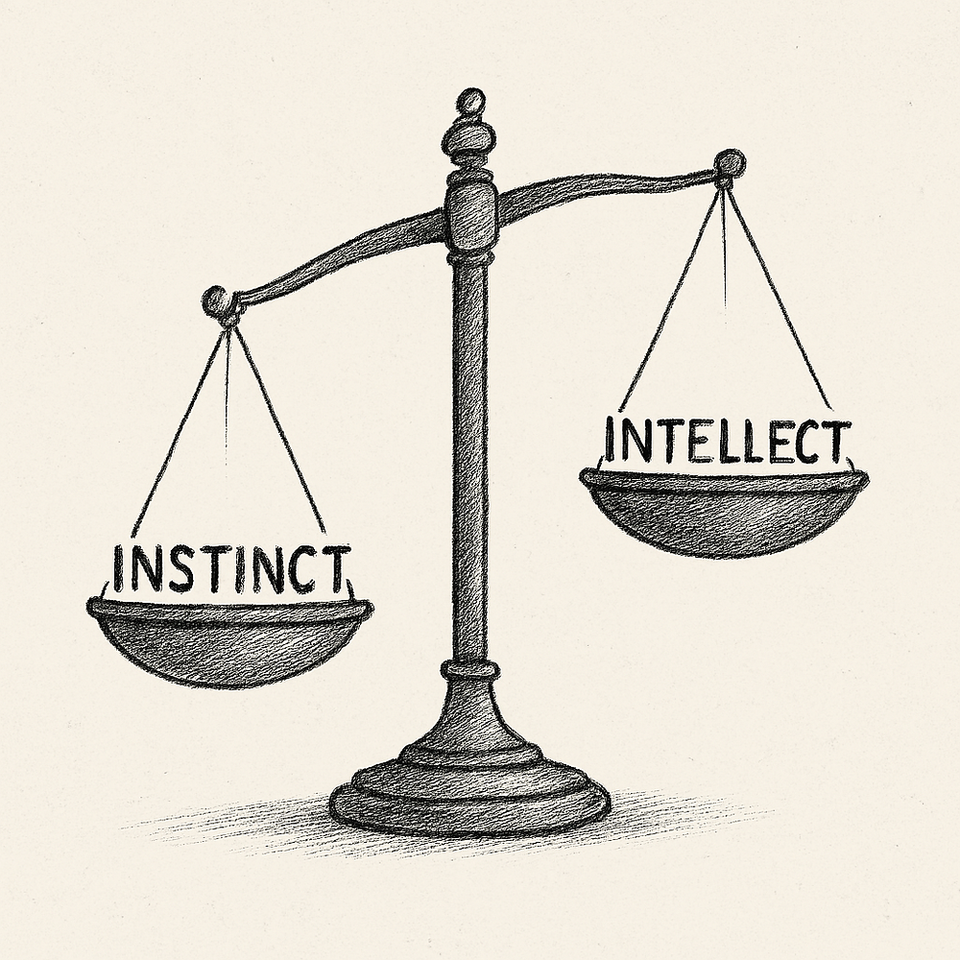The Illusion of Equilibrium

One idea that has always intrigued me is the notion of trade-offs. And how, in economics, everything eventually returns to equilibrium—at least in theory.
But what happens when you apply this to human life? Unlike markets, we’re not rational. We’re driven by urges, distractions, fears—wealth, desire, pleasure. In such a world, how is anyone expected to return to “equilibrium”? And what is equilibrium anyway?
For me, it’s not some static ideal. It’s just a fragile sense of balance—across work, habits, health, and state of mind. But even that feels like a myth. Economists have a term: “new equilibrium.” Maybe we live in versions of that too. A new rhythm after a breakup. A different energy post-burnout. But are those really balanced states? Or just our mind making peace with imbalance?
As a kid, I was introverted. Quiet. Thoughtful. Then one day, I could speak with strangers effortlessly. I hadn’t exercised till I turned 17—then became a cyclist within months. A year later, I was riding 100 km and working a full day after. A new stamina. A new baseline. A new… equilibrium?
Maybe. But none of it felt balanced. When I chased cycling, my studies suffered. When I fell in love, my career took a hit. When I went all-in on wealth creation, my peace dimmed. So what is this chase for balance, really?
Maybe equilibrium is an illusion. Like stock trends pretending to make sense. Or a drunk man wobbling down the road, momentarily upright before tilting again. Maybe that’s me. Maybe that’s all of us.
What we call “balance” is just a fleeting moment of acceptance. A pause in the swing. A breath before the next fall. The pursuit of balance? Overrated.
Consciousness—real presence—is something else. Buddha spoke of it. Meditators try to cultivate it. But here’s the thing: when I’ve truly been in the moment, I wasn’t thinking about being present. I was just there. Fully. And every time I grew—whether becoming a cyclist or learning to speak—it happened unconsciously. Instinctively. Without a plan.
And that’s the paradox: the more conscious we try to be, the less we change. Growth happens in the shadows—when we’re not trying to orchestrate it.
That’s why I’ve stopped setting goals. They’re just desires dressed up in strategy. I remember what my grandfather once said:
“Your hard work and your earnings should be a secret.”
Twenty-three years after he passed, I finally understand what he meant.
Did Buddha plan enlightenment? Did a tree plan to grow?
Everything real I’ve ever become was not planned. It emerged. It arrived without knocking. Spontaneity isn’t chaos—it’s intelligence. It’s presence. It’s surrender. And yes, it’s freedom.
So what now?
Feel the doubt, but don’t feed it. Let pain arise, but don’t wear it. Follow your gut, not your blueprint. Train your instinct, and intellect will catch up later—to write, to reflect, to understand.
Live first. Write later.
That’s what I’ve done here. And if it makes sense, maybe it’s because it came from instinct—unfiltered, unbalanced, and completely alive.